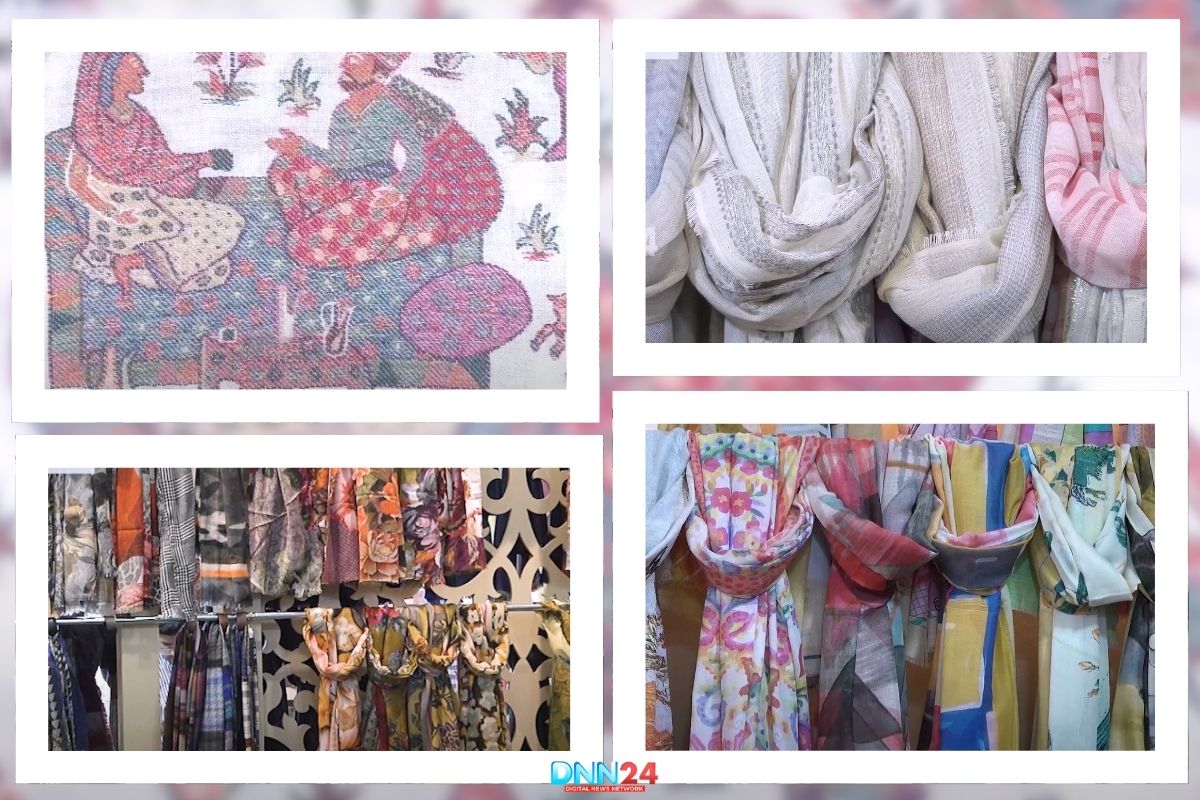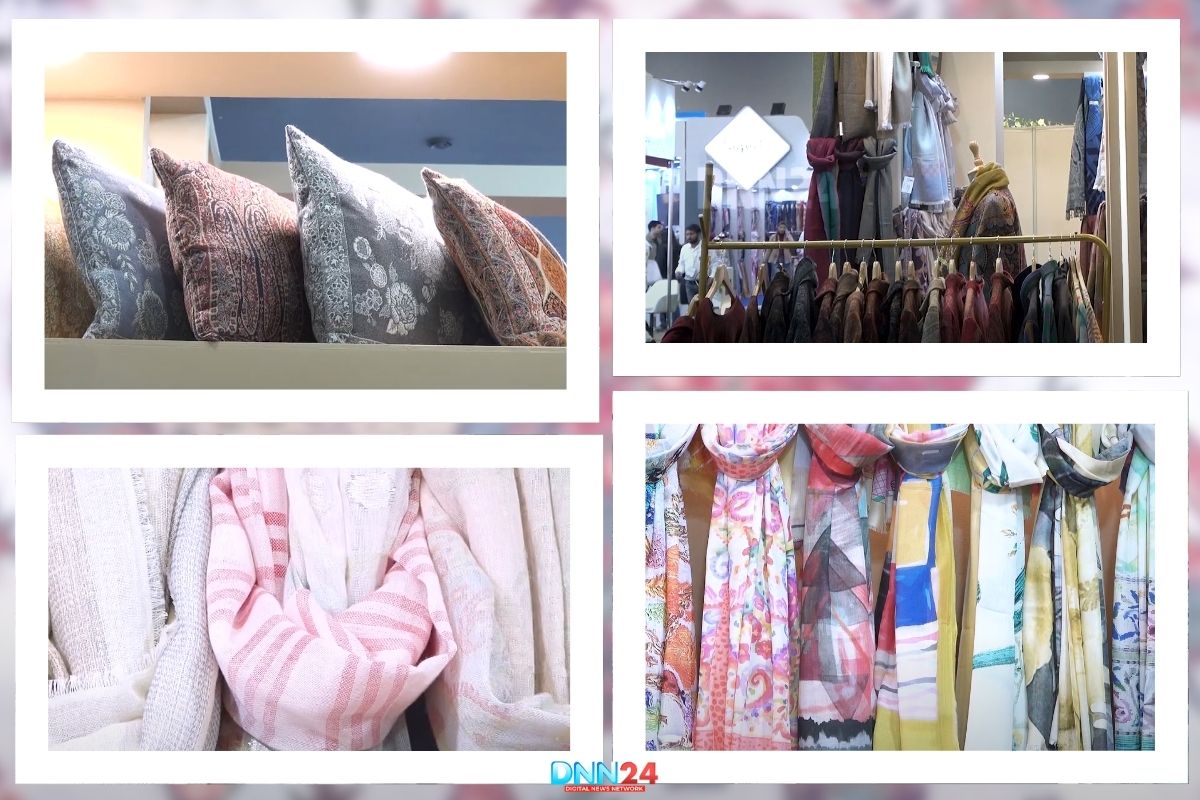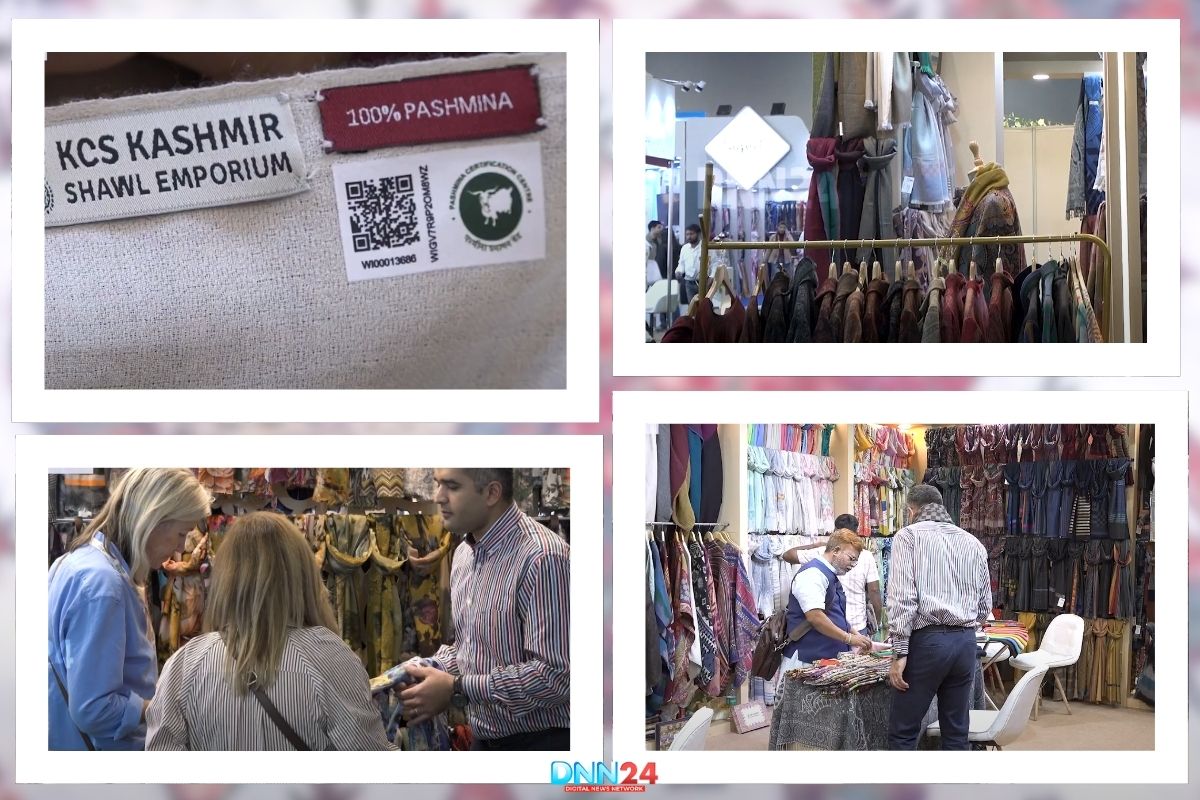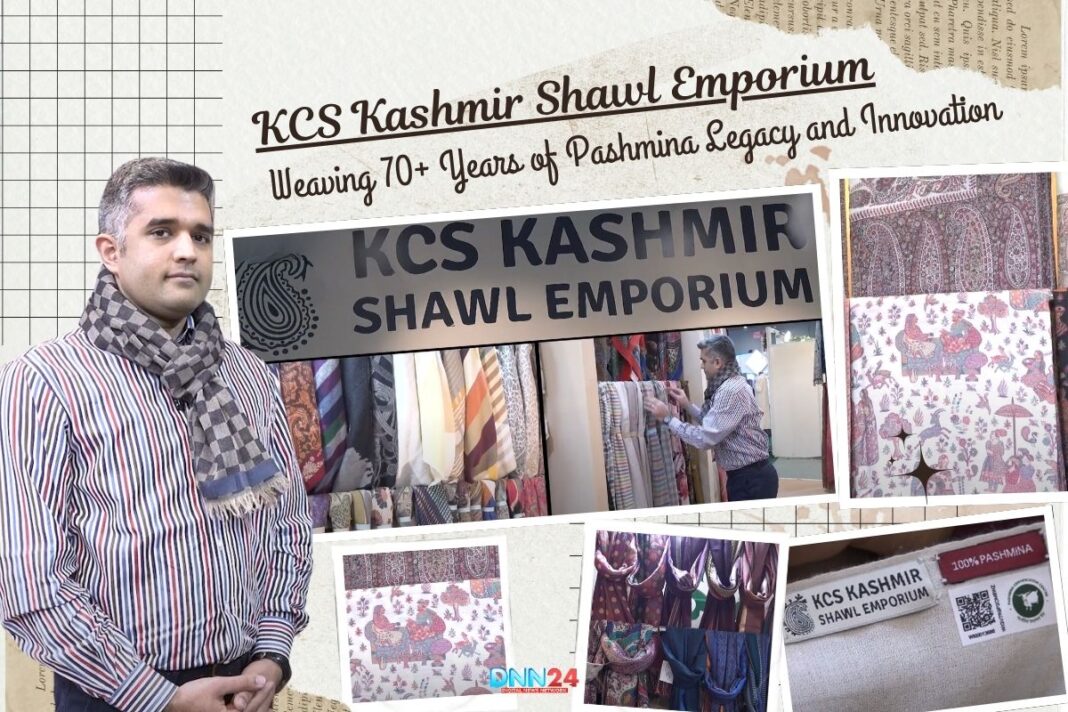Where there is talk of Pashmina, Kashmir’s name must surely follow. This ancient proverb sums up a tradition that has been embedded in the Indian art of making since the olden days. KCS Kashmir Shawl Emporium stands as a living testament to this legacy, carrying forward the ancient art of Pashmina weaving since 1950.
This is not simply an impressive story about how a tradition is maintained but the smooth combination of age-old methods and innovation. Emporium is not merely a shop; it is an expression of hope, hard work, and the deft fingers of three generations, which continue to keep the torch of Kashmiri crafts alive.
The journey began when the founder’s grandfather migrated from Srinagar to Delhi in 1950, carrying with him the precious knowledge of shawl-making that he had mastered in the valleys of Kashmir. The family business is one of the third-generation companies, and today it is a full-scale company that has three shops, sells online, and has been in the exchange business since 1980.
The fact that they have managed to keep this heritage alive is quite remarkable, even in these changing times. It can be attributed to being able to change with the times and having the vision to see a modern multi-faceted business out of a one-store operation that was started back in Janpath.
KCS Kashmir Shawl Emporium-The Sacred Art of Pashmina: From Changthang to Your Closet
Pashmina, derived from the Persian word ‘pashm’ meaning wool, represents the finest and most luxurious fibre known to humanity. This marvellous material is produced by the Changthang goats, which browse in the rugged and chilly terrains of Ladakh in Jammu and Kashmir.
These remarkable animals have adapted to survive in extreme temperatures, developing an incredibly soft and fine undercoat that becomes the source of the world’s most coveted textile. The way in which this precious fibre gets to the hands of the people is amazing, just like the end product.

An ordinary design of a single Pashmina shawl takes 2 to 4 months to complete in an entire journey that can be described as the work of love. The time becomes 6 months or a full year in case of intricate work, usually the embroidery work such as Sozni, Ari or Jamawar.
Each process, everything, is done by hand, with amazing patience and skill, beginning with the preparation of the yarn and ending in the final weaving and embroidery. Authentic Pashmina is not a machine-woven fabric, but it is only woven on primitive hand looms; this process makes sure that each of these creations is left with the personal touch of its artisan.
The resulting fabric is very fine and light, to the point that literally a whole shawl can fit through a finger ring, which is a testament to the amazing level of craftsmanship. Kashmir manufactures about 500-7000 Shawls in a year, but the product is not only commercial; each Shawl can be termed a cultural heritage, which may be successively priceless.
Innovation at the new millennium: Ancient wisdom in the digital age
In today’s rapidly evolving technological landscape, KCS Kashmir Shawl Emporium has embraced change while honouring tradition. Artificial intelligence has become a strategic element or branch of the company, and it has been used to communicate with customers and in the design process.
The introduction of AI technology has improved their exportation activities and customer relations and brought a new world regarding design revolution. The integration is not total and hurried, but careful so as not to make technology subjugate the human factor that has made their products unique.

The company has grown to have a wide variety of products since its smaller entry into the market with Pashmina shawls. Nowadays, KCS employs wool shawls, silk scarves, suits, jackets, capes, ruanas, and a collection of home textiles with sofa throws, woollen blankets, matching cushions, duvet covers, etc. They also produce unstitched suit material and a choice of selected sarees, which ensures that they satisfy the needs of the different customer categories and still do justice to their quality.
Even the consumer base has changed, and now one in every four customers is a man. This shift has led to the development of specialised products like Nehru jackets, bandits, and men’s accessories, reflecting the changing fashion sensibilities of modern consumers who appreciate fine craftsmanship regardless of gender.
Sustainable Problems and Future Goals: Way to Go
The move towards sustainability is the chance and the struggle of the textile industry. Although KCS acknowledges the need to use sustainable dyeing and production techniques, it is faced with a complex choice since it needs to follow the reality of the market needs.
Sustainability initiatives are yet to attain full integration in the mass market in terms of offering a commercial response at competitive prices. This gap between consumer expectations and sustainable practices represents one of the industry’s most significant challenges.
Nevertheless, the company values authenticity and quality. Thanks to government efforts, all of their products are now certified by the Pashmina testing laboratory at Dehradun. Each piece comes with a QR code and photograph, ensuring customers can purchase genuine Pashmina with complete confidence, whether it’s handloom or power loom manufactured.

The differentiation of legitimate and counterfeit Pashmina is still essential. Although technology has allowed the production of Pashmina on power looms without loss of quality, the true issue at hand is the sales of cotton, viscose, or wool blends as authentic Pashmina. It is a fraudulent process, and the system of certification works to fight against the cunning trick as it can save consumers and the true manufacturers.
The Indian textile industry seems poised to grow to an unprecedented level in the future. The growing middle class, the ever-increasing income rates, and the mixed cultural circumstances form an enchanting background for expansion. India’s rich tapestry of communities, each with unique aesthetic preferences and wearing styles, ensures that every market segment has growth potential.
For those inspired by this heritage craft, KCS Kashmir Shawl Emporium continues to serve customers through their website, kcs. We offer an extensive range of products, designs, and colours through a user-friendly e-commerce platform. The online market is there to make the splendour of Kashmiri artisanship felt by customers all over the globe and to pick up the tradition that started more than seventy years ago and creates real dreams, one fibre at a time.
Also Read: Hilal Ahmad Wani: Kashmir’s Silent Cricketer Conquered World Deaf Cricket League
You can connect with DNN24 on Facebook, Twitter, and Instagram and subscribe to our YouTube channel.



